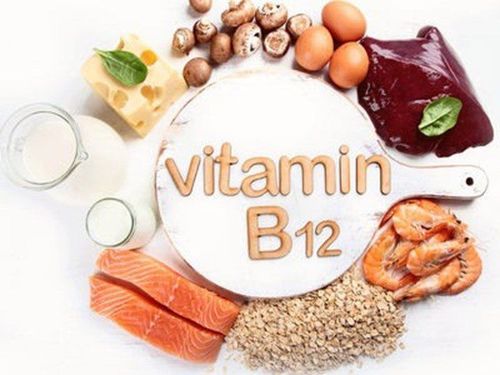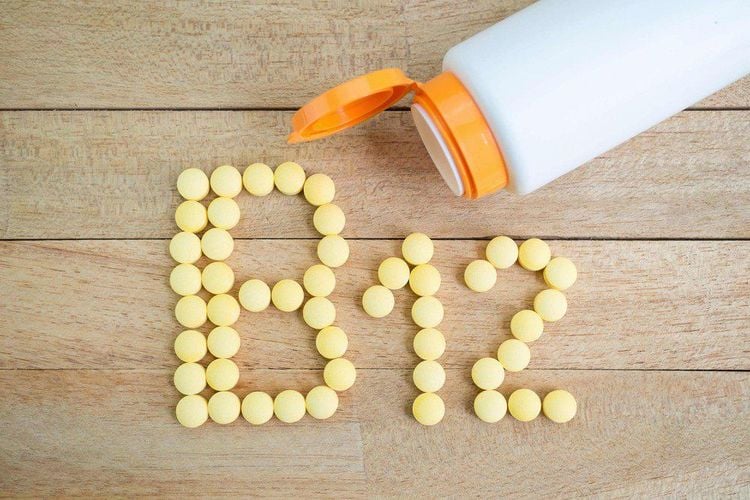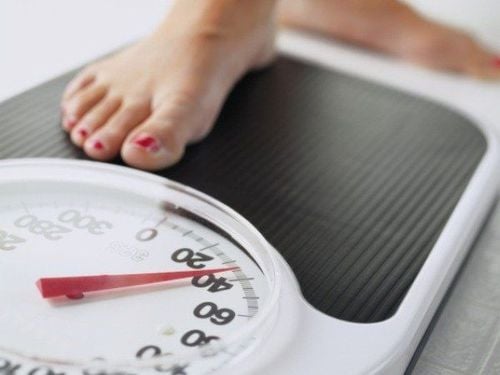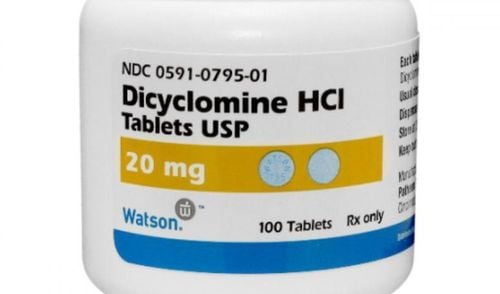This is an automatically translated article.
The article was professionally consulted with Specialist Doctor I Vo Thi Thuy Trang - Gastrointestinal Endoscopy - Department of Medical Examination & Internal Medicine - Vinmec Danang International General Hospital.Vitamin B12 is a water-soluble vitamin that plays a central role in several aspects of health, including brain function, heart health, red blood cell production, and DNA. Also, some people are taking vitamin B12 supplements as a quick weight loss solution. So does vitamin B12 lose weight as people think?
In fact, some people even claim that increasing vitamin B12 intake can help fight fatigue, boost energy levels, and speed up your metabolism.
However, research on the effects of vitamin B12 on weight loss has shown mixed results.
1. What is Vitamin B12?
Vitamin B12, also known as cobalamin, is a water-soluble vitamin that is essential for several aspects of health. Vitamin B12 is involved in the formation of DNA and red blood cells, as well as being necessary for brain function, heart health, energy production and several other functions.It is found naturally in many animal products and is sometimes added to fortified foods.
Vegetarians, vegans, older adults and people with digestive issues who may have difficulty absorbing nutrients may be at a higher risk of vitamin B12 deficiency and need supplementation from other supplies.
2. How does vitamin B12 affect body fat and metabolism?
Although research on vitamin B12 in humans is still very limited, some research suggests that vitamin B12 may affect body fat and metabolism.According to a review showing that vitamin B12 plays an important role in fat metabolism, a deficiency may be associated with increased fat accumulation and obesity.
Another animal study showed that severe vitamin B12 deficiency resulted in a significant increase in body fat percentage and cholesterol levels in pregnant rats. In addition, an animal study showed that administering B vitamins to rats fed a high-fat diet reduced weight gain and increased levels of certain enzymes that affect metabolism. , compared to the unused group.
However, currently, evidence for this effect is lacking and additional high-quality studies are needed to determine how vitamin B12 may affect fat and metabolism in the body. body in humans.

3. Could low vitamin B12 levels be linked to obesity?
Some studies have found that having adequate amounts of vitamin B12 in the body can reduce the risk of weight gain and obesity.According to a large study done on 9,075 people, it was found that having higher blood levels of vitamin B12 was associated with a lower risk of obesity.
Similarly, another study of 976 people found that having a low vitamin B12 intake was associated with a higher risk of being overweight or obese.
Additionally, a study of 256 children found that children with lower levels of vitamin B12 tended to have a higher body mass index (BMI).
Remember that although these studies show an association between vitamin B12 levels in the body and body weight, they do not account for other factors.
Therefore, it cannot be concluded that vitamin B12 helps with weight loss. More studies are needed to determine if vitamin B12 has a direct effect on body weight or BMI.
4. Signs of Vitamin B12 Deficiency
A deficiency in vitamin B12 can lead to megaloblastic anemia, a condition characterized by a lower than normal number of red blood cells.Giant cell anemia can cause many symptoms including:
Shortness of breath Headache Heart palpitations Fatigue Weight loss Dementia Vitamin B12 deficiency does not always lead to megaloblastic anemia , many people may experience only mild symptoms such as fatigue .
Additionally, while a vitamin B12 deficiency may not cause weight gain, it can lower energy levels and contribute to fatigue, making it harder to stay active and manage your weight.
Some research shows that a vitamin B12 deficiency can cause loss of appetite, potentially leading to weight loss if left untreated.
If you have a vitamin B12 deficiency, your doctor will likely recommend oral or injectable vitamin B12 supplements to increase your blood levels, which can protect from a deficiency to prevent these symptoms.

5. Sources of vitamin B12
Vitamin B12 is found naturally in various food sources, including animal products such as meat, fish, poultry, eggs, milk and dairy products.It is also added to many fortified foods, such as breakfast cereals and plant-based milks such as almond, soy or hemp milk.
Vitamin B12 supplements are also available in several forms, including capsules, tablets, liquids, and lozenges. This vitamin is also commonly found in many multivitamin supplements.
People who do not regularly consume animal products rich in vitamin B12 should consider adding fortified foods to their diet or taking supplements to ensure nutritional needs are met.
Thus studies show that having adequate levels of vitamin B12 in the blood can reduce the risk of obesity in children and adults. With that, animal research shows that vitamin B12 can affect metabolism and body fat.
Increasing the amount of vitamin B12 in the body through food or supplements can help prevent deficiency, which can improve vitamin B12 deficiency symptoms such as low energy levels and fatigue.
However, if you're already getting enough vitamin B12 in your diet and aren't deficient in this nutrient, it's unclear whether supplementing with vitamin B12 promotes weight loss.
Please dial HOTLINE for more information or register for an appointment HERE. Download MyVinmec app to make appointments faster and to manage your bookings easily.
Reference source: healthline.com













